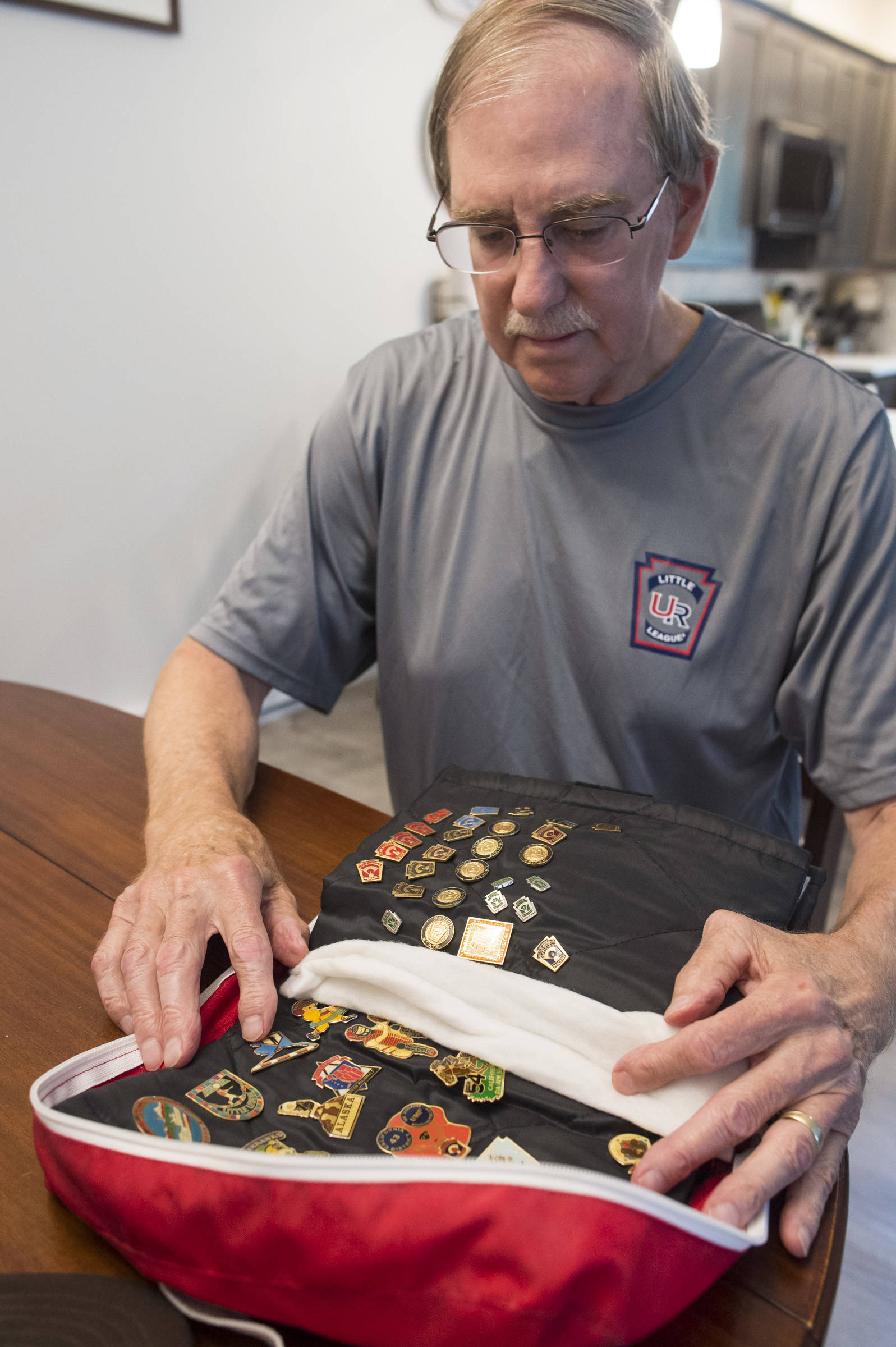Tom Karpstein, the Gastineau Channel Little League president and baseball umpire of 46 years, may have spent his last season behind the plate this summer. At 70, Karpstein’s body isn’t as agile as it used to be. His mind, however, is a different story. As he begins to tell his story of four decades of umpiring, his mind travels to a place several thousands of miles away: San Bernardino, California.
Karpstein was one of a dozen umpires handpicked to work the 1987 Little League Western Regional Tournament, one round below the World Series. Hawaii was on its way to toppling Washington in the third-place game when a Washington catcher made a tough catch against the backstop. Karpstein called it an out, but after the Hawaii coach asked for the opinion of another umpire, the call was overturned.
“He saw it just glance off the fence and it’s like, ‘Ah, no, I got to change my call with 1,500 people looking on,’” Karpstein said. “The teams had already left and they were getting to warm up for the next half inning. They were gracious when I called them back on the field, Washington, and let Hawaii bat again.”
Karpstein has always put getting the call right above personal pride. His dedication and commitment have earned him the respect of fellow umpires — and coaches.
Tom Mayer has been umpiring with Karpstein since the mid-1990s and has learned a lot from him, a man Mayer describes as “fair and equitable to everybody.”
“That’s one of the big things about being an umpire is not taking sides,” Mayer said. “He’s always been exceptional at calming everything down when things get tense and doing the right thing for the kids.”
“He’s consistent, he never changes, and he’s always there to help wherever needed,” said Post 25 coach Joe Tompkins, who as a 12-year-old was once thrown out of a game by Karpstein.
Karpstein was born and raised in Sitka and worked at the Sitka Telephone Company and later Alaska Communication Systems. He grew up playing baseball at Moller Park — now the crown jewel of Alaska baseball diamonds — and running track on old airstrips on Japonski Island. After moving back to Sitka after several years away in the military, Karpstein took up coaching baseball. Even then, he was very knowledgeable about the game. One time, Karpstein submitted a written appeal the day after his team lost regarding his interpretation of a pitching rule.
“The (league) board said since the umpire didn’t say the game was under protest, you lose the game, and we should’ve won the game,” Karpstein said. “And it was at that point I said to myself, ‘After this season, I’m just going to umpire and make sure the rules are interpreted in the correct way.’ I did not envision 46 years later I’d still be doing it.”
“I do it because I love the game of baseball,” he said. “I played it all through high school and have enjoyed it. I’m glad that my wife and family have allowed me to do the games.”
Karpstein moved to Juneau in 1977 for a three-month job. But before his time was up, he fell in love with his future wife, PJ, who grew up around the game of baseball like Karpstein. PJ’s parents, Stan and Joann Miller, were heavily involved in Little League and spearheaded the construction of what is now known as Miller Field.
“Any family gatherings were mom and dad and Tom talking Little League,” PJ said. “I’ve never captured all of that stuff. And our daughter can talk baseball with him. So we can watch the Mariners game and they’re just interacting because they see everything and they understand everything. And I’m like, ‘What happened?’”
Little League in Juneau is a shell of what it used it be. According to Karpstein, over 1,000 youth participated in the sport when he started out; this year there were a little over 400 kids. With only six to eight umpires to go around, Karpstein averaged 30 games in the regular season before traveling to cover district and state tournaments. He estimates he’s worked 40 Little League district tournaments and 20 state tournaments.
After two knee and hip replacements, it’s become increasingly harder to umpire younger-aged divisions, like Majors (ages 11-12), which require Karpstein to crouch down behind the catcher to protect himself. That’s the age Karpstein says he most enjoys because it allows him to teach the game to the youth, even if that means the hard way, in the case of Tompkins.
Karpstein understands he’s can’t be everyone’s friend when he’s on the field. After 40-plus years of umpiring, the hecklers don’t bother him anymore, but instead, keeps him on top of his game.
“At least they’re paying attention to what I’m doing out there,” Karpstein said. “If it’s quiet, sometimes it’s like, ‘Is anyone out there in the stands watching the game?’”
• Contact sports reporter Nolin Ainsworth at 523-2272 or nainsworth@juneauempire.com. Follow Empire Sports on Twitter at @akempiresports.

